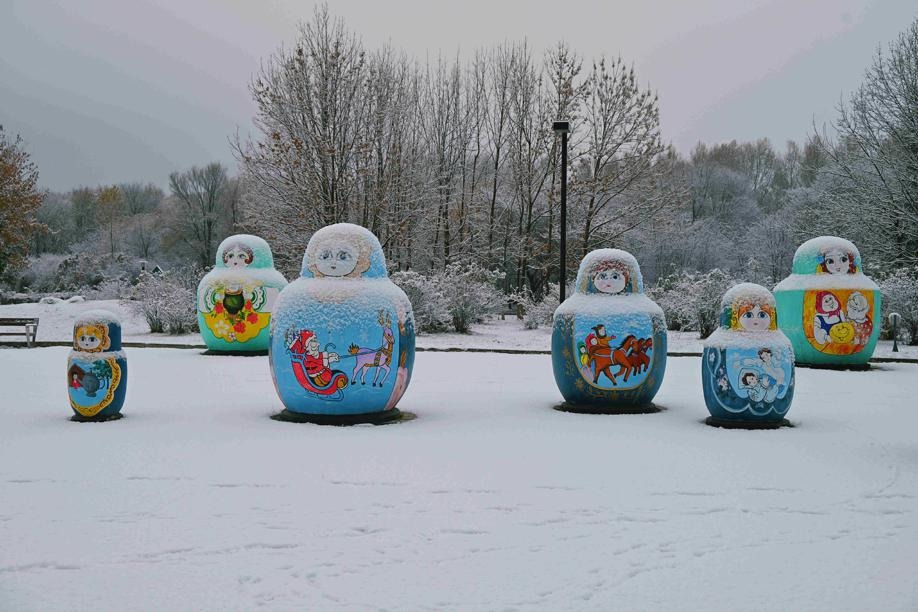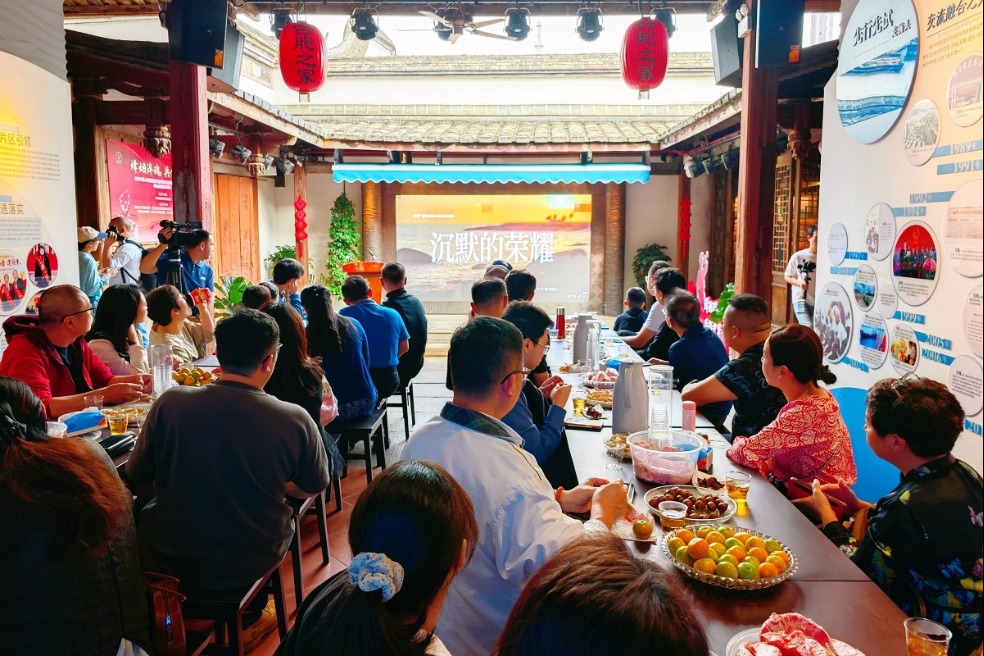NW China inland province harvests 'seafood' from saline-alkali lands

LANZHOU -- For farmers on China's inland and arid Loess Plateau, fishing nets were once unfamiliar tools. But Zhao Guohua, a 45-year-old who spent most of her life growing wheat, has now mastered their use for a seemingly unrealistic task, namely the harvesting of "seafood."
She cast a fishing net into the pond and slowly retrieved it. Contained within this net was a shimmering and splashing mass of Pacific white shrimps, previously an impossible bounty of nature in this part of China.
Zhao hails from Wufo township, Jingtai county of the city of Baiyin, Northwest China's Gansu province. Although situated near the Yellow River, this area is characterized by an arid climate, scarce rainfall and vast stretches of saline-alkali land. Once considered unfit for crops, the land here has, in recent years, become a "goldmine" for "seafood."
In Jingtai county, approximately 260,000 mu (about 17,333 hectares) of farmland suffers from varying degrees of salinization. Six townships in Jingtai began to develop aquaculture in 2016 as an alternative to conventional farming -- as salinization had rendered soil completely unsuitable for farming.
Jingtai county's aquatic products now primarily include Pacific white shrimp, largemouth bass, rainbow trout and golden trout, with fishing areas exceeding 10,000 mu. In recent times, local average annual aquatic product output has surpassed 2.1 million kilograms -- with an average annual output value of over 50 million yuan (roughly $7.06 million), benefiting more than 2,000 local households.
Zhao's family is among those to benefit from this additional source of income, as she has secured a part-time job with a fishing company. "When it's not busy on the farm, I come here to help out. I can make over 100 yuan a day, and it's so close to home," the wheat farmer noted.
The company she works for, Jingtai Jincheng Agricultural Technology Development Co., Ltd, was founded in 2015. This company boasts a fishing area of 120 mu -- with an average yield exceeding 250 kilograms per mu, and an average annual output value of over one million yuan, according to Zhou Jincheng, head of the company.
Over the past three years, its Pacific white shrimp and largemouth bass have gained recognition in both local and regional markets.
Zhou noted that aquatic production has now repurposed previously idle and largely unproductive land resources in Wufo township -- allowing farmers to generate income despite the saline-alkali soil.
Notably, application of technology is crucial for this remarkable change in Gansu.
Technicians have successfully transformed local saline-alkali lands, featuring high concentrations of salty and alkaline water, into productive aquaculture ponds. By carefully adjusting trace elements in the soil and water -- they have stabilized the pond ecosystems to simulate a natural marine environment.
This progress has been driven by years of technical support from leading research institutions.
As a result, the farming of Pacific white shrimp and other aquatic species has expanded from the initial base in Baiyin to a broader area within Gansu province. Now, more and more of this "seafood" is making its way to dinner tables.
Gansu is not the only landlocked region in China's northwest making waves in aquaculture. Xinjiang Uygur autonomous region is also leveraging its desert saltwater resources to cultivate a surprising variety of aquatic species -- including crabs, whiteleg shrimp, rainbow trout and Australian freshwater crayfish.
These efforts have enabled supply for both domestic and international markets -- rapidly popularizing the term "desert seafood."
Benefits extend beyond economics. In Jingtai county, the development of saline-alkali fisheries has not only created a new revenue stream, but has also begun to restore the local ecosystem. Where the land was once barren, vitality is being regained.
"Now, more and more waterbirds are spotted in the surrounding areas," Zhou noted, while adding that vegetation has returned around ponds. "The saline-alkali land, where almost nothing grew before, is now nourishing a new 'water town.'"





































